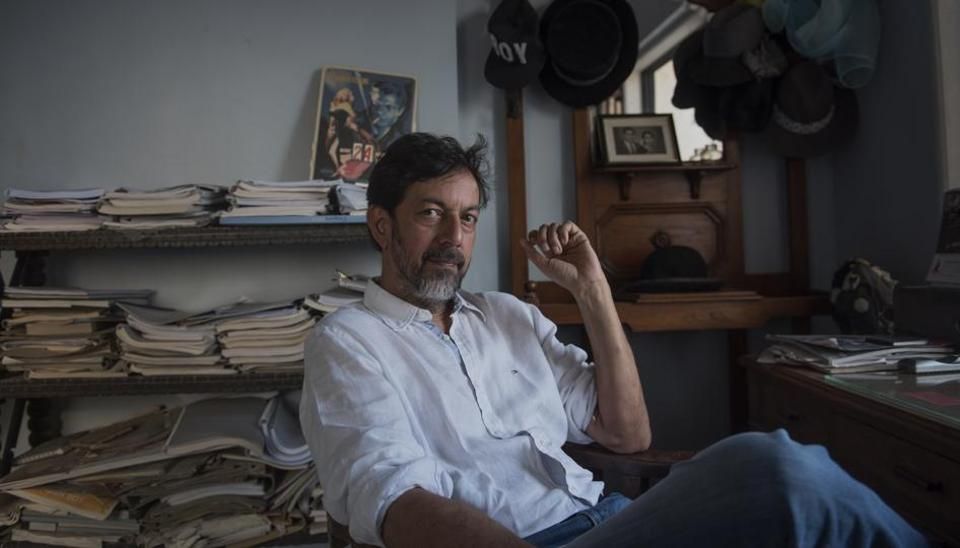Actor-director Rajat Kapoor on why he won't adapt Shakespeare to film

If you need to make a set for ‘inside the mind of a director’, you can recreate Rajat Kapoor’s Bandra office. A framed poster of Hitchcock’s Vertigo stands leaning against a wall, partly hidden behind photographs. Above it, the only framed poster is that of the director’s first — and unreleased — film, Private Detective. Several pairs of polished black shoes stand in a neat semicircle. Theatre props lie stacked over giant suitcases. Wire-bound theatre scripts are clumsily stacked on wooden shelves. And inside an old bookcase, Shakespeare has the company of Amritlal Nagar, Sharad Joshi, Arthur Miller, Bertolt Brecht and Lev Kuleshov, among others.
Kapoor (56) is a fan of the classics. In his downtime, he watches films by Martin Scorsese, Woody Allen and Billy Wilder with his kids. He tried watching Game of Thrones for five minutes, and didn’t get the appeal of it. He says the same of a large percentage of films made today: “We’re addicted to fantasies and big stars. And it isn’t specifically an Indian problem.”
It’s true of the films offered to him as well: “Ninety percent of the scripts I read are ghastly.” So he agrees to do the rare ones that appeal to him. That’s how he came to play the lead in debutant director Nicholas Kharkongor’s indie film, Mantra, about the economic liberalisation of India in the ’90s. The director had assisted Kapoor on his film, Fatso! (2012). And when he came to Kapoor with his script, he agreed to do it without an acting fee.
Kapoor himself remembers the late ’90s as a bad phase for cinema. During the time, he says, support from the NFDC (National Film Development Corporation) dried up. His only feature film — Private Detective — didn’t release due to lack of funds. “No good cinema came out during that period.”
But money, or the lack thereof, never determined Kapoor’s choices. He says it’s nearly impossible even now to get money to make good, independent cinema. His 2013 film, Ankhon Dekhi, didn’t make money, though it won several awards. The struggle is constant. But Kapoor is relentless. Even now, he has two scripts he wants to get on with. “I will jump out of a window if I don’t make a film soon.” He wants to start work by May-June, and might even take the crowd-funding route.
But what he insists he won’t do is take up mainstream roles just for the money, even to be able to put it back into his own films. Other renowned film and theatre actors have done it. But Kapoor is simply not interested. “Money doesn’t interest me. I might make a bad film. I think Fatso! failed as a film. But I want my legacy to be of someone who did every frame with integrity,” he says.
It’s this idealism that drives him. So much so that he won’t even adapt Shakespeare for film, given the success the Bard’s works have enjoyed in Indian films and in the West. He’s already adapted a fair bit of Shakespeare for the stage — Hamlet, Lear, As You Like It, Macbeth — so he’d be an ideal candidate to do it. “Shakespeare doesn’t translate well on screen. Besides [Akira] Kurosawa’s adaptations, where he uses theatrical elements of kabuki, most others don’t work.”
What, then, is the endgame of a director happy to make films for a small, niche audience? He says it’s the hope that he will be remembered for good cinema. “It will be nice to leave behind cinema that gets watched even 50 years later.” As with all art and cinema, it’s the dreamers that eventually matter.
Mantra, starring Rajat Kapoor, directed by Nicholas Kharkongor, releases on March 17






